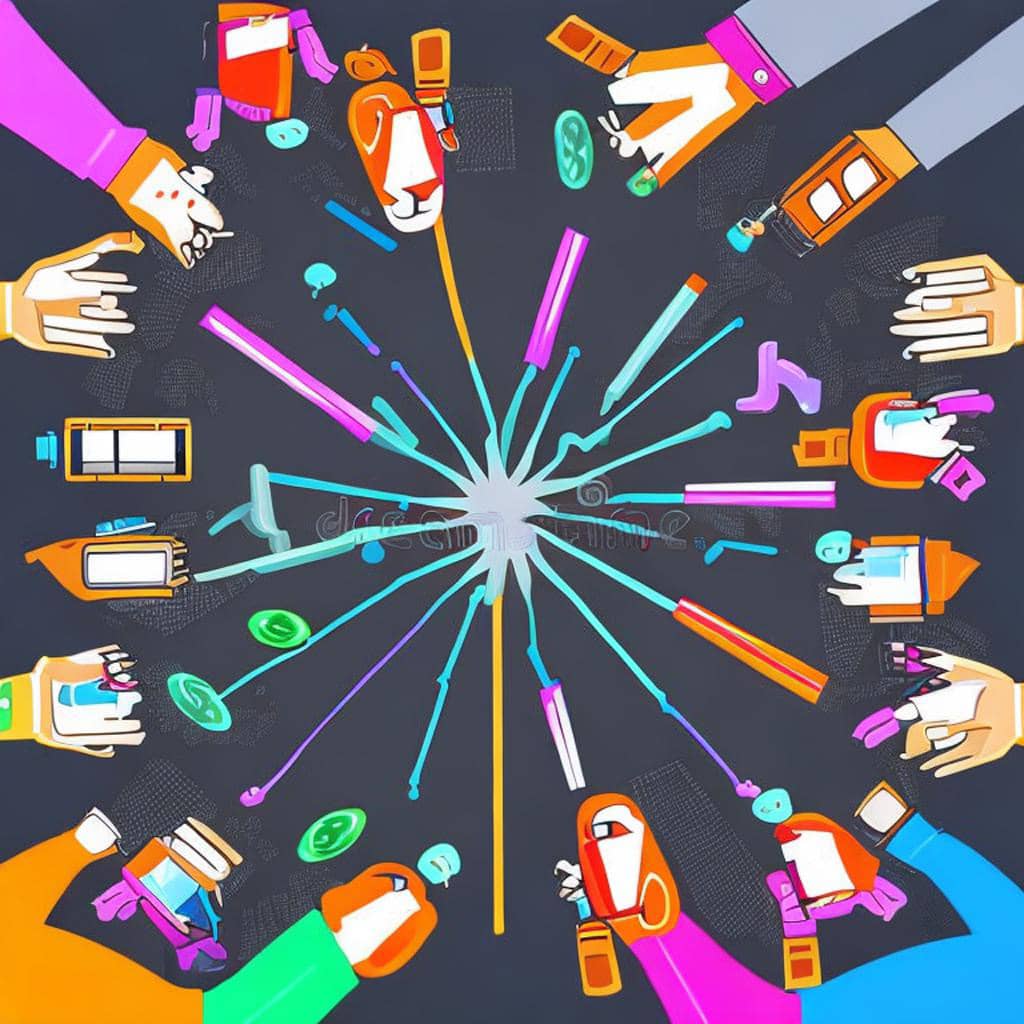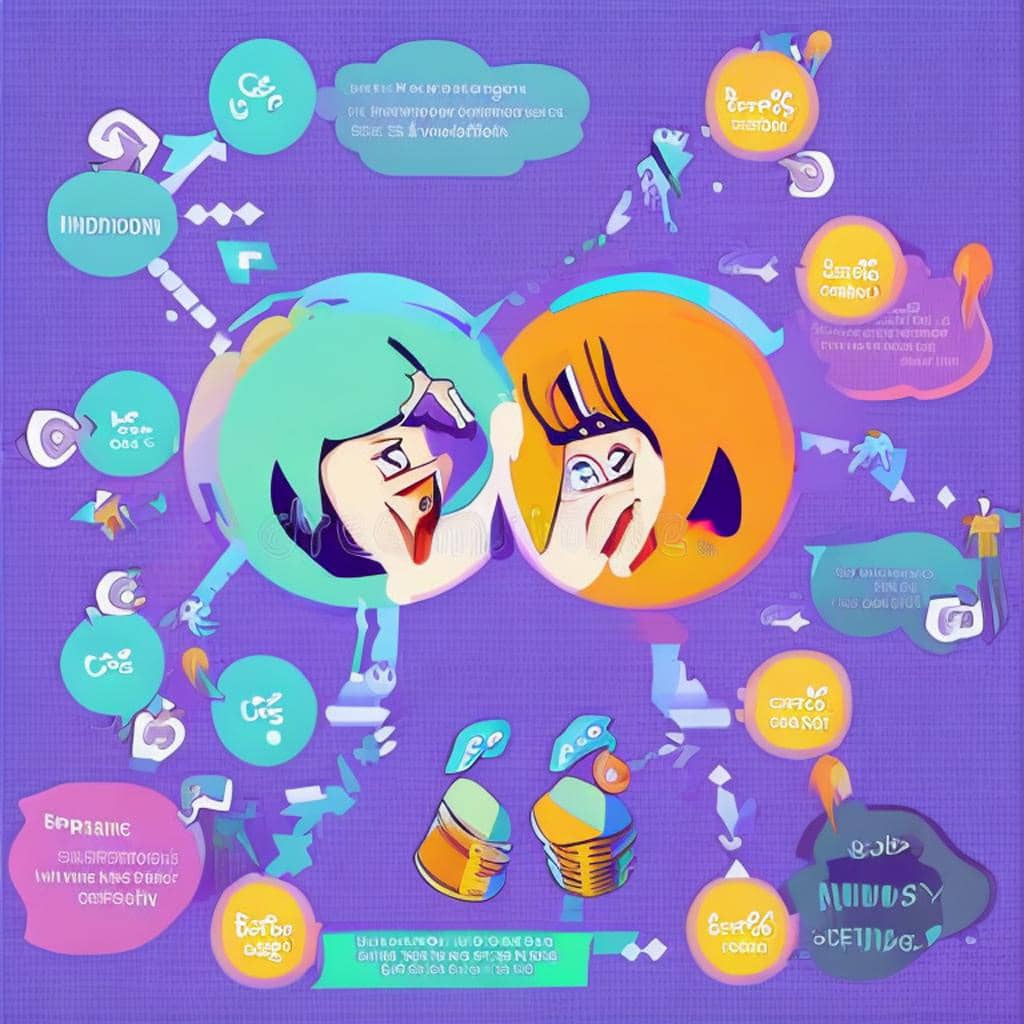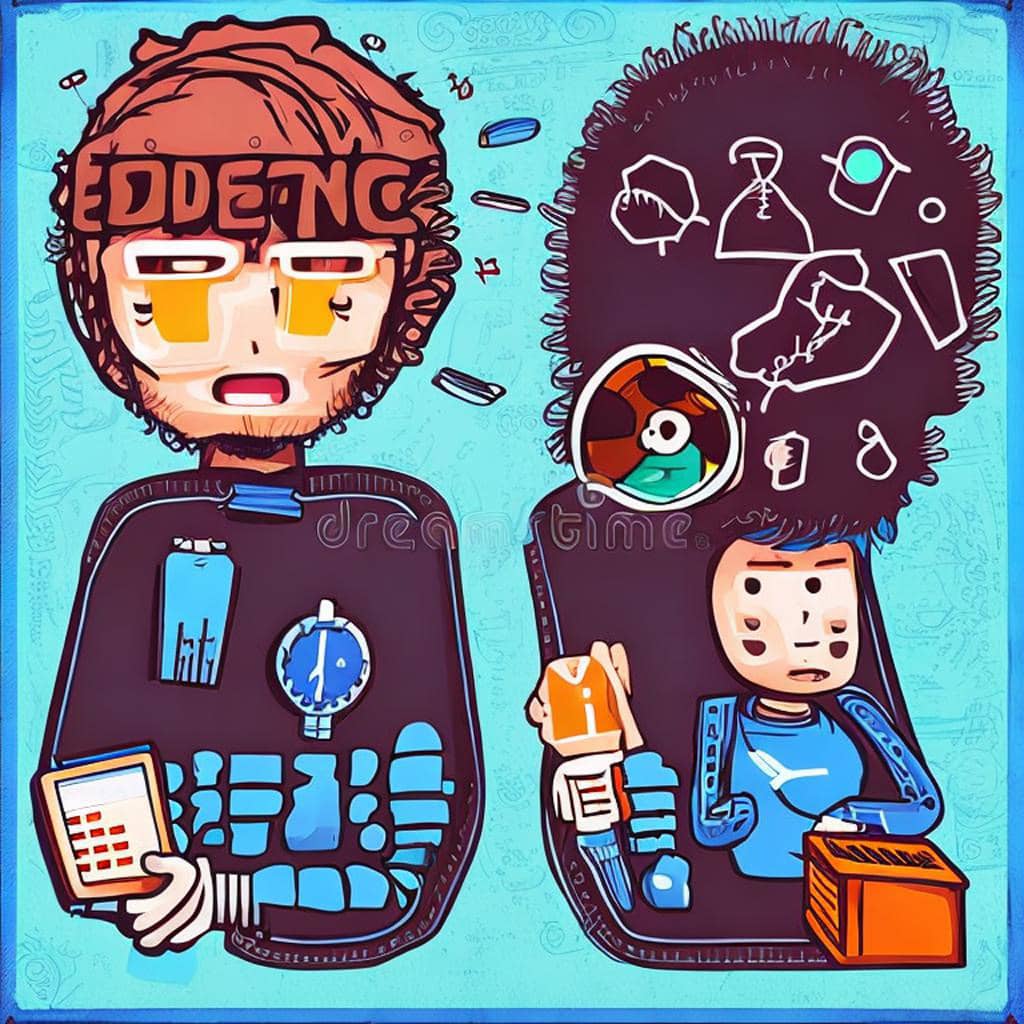Difference between dependence and addiction
Dependence and addiction are two terms that are often used interchangeably, but they have distinct meanings and implications.
Dependence refers to the physical and psychological reliance on a substance or behavior. It occurs when the body and mind become accustomed to the presence of a substance or behavior and require it to function normally. Dependence can occur even with the proper use of medications, such as painkillers, and can lead to withdrawal symptoms when the substance or behavior is stopped.
Addiction, on the other hand, refers to a compulsive and uncontrollable use of a substance or behavior, despite negative consequences. It is a chronic disease characterized by drug seeking, compulsive use, and the inability to control drug use. Addiction can lead to significant impairment in daily life, including physical, mental, and social consequences.
While dependence and addiction are related, addiction involves more complex behavioral and psychological factors than just dependence. Dependence is a component of addiction, but addiction also involves intense cravings, compulsive behavior, and difficulty controlling drug use.
In summary, dependence is a physical and psychological reliance on a substance or behavior, while addiction is a chronic, compulsive, and uncontrollable use of a substance or behavior despite negative consequences.

Social dependance
It is possible for people to become dependent on social structures as well. This can happen when an individual relies heavily on a social structure for their emotional, social, or psychological well-being, leading to a dependence on that structure.
For example, someone may become dependent on their job for their sense of self-worth, or they may become dependent on a particular social group for their sense of belonging. In some cases, an individual may become dependent on a religious or spiritual community for their sense of purpose and direction in life.
This type of dependence on social structures is often referred to as social dependence or socioemotional dependence. It is important to note that social dependence is different from addiction, as it does not involve the compulsive and uncontrollable use of a substance or behavior, but rather a reliance on a social structure for emotional or psychological well-being.
While social dependence can be positive and provide individuals with a sense of connection and belonging, it can also have negative consequences if the social structure is unhealthy or harmful. For example, an individual may become dependent on an abusive partner for their emotional well-being, leading to a cycle of dependence and abuse.
Social dependence is a valid term to describe a dependence on social structures for emotional or psychological well-being, and it is important to recognize its potential impact on individuals' lives.
Table summarizing the differences between dependence, addiction, and social dependence
| Dependence | Addiction | Social Dependence |
| Physical and psychological reliance on a substance or behavior | Compulsive and uncontrollable use of a substance or behavior | Reliance on a social structure for emotional or psychological well-being |
| Can occur with proper use of medications, such as painkillers | Involves intense cravings, compulsive behavior, and difficulty controlling drug use | Can happen when an individual relies heavily on a social structure for their emotional, social, or psychological well-being |
| Can lead to withdrawal symptoms when substance or behavior is stopped | Leads to significant impairment in daily life, including physical, mental, and social consequences | Does not involve the compulsive and uncontrollable use of a substance or behavior |
| Example: Dependence on caffeine to function normally | Example: Addiction to drugs or alcohol, resulting in loss of employment or relationships | Example: Dependence on a job or social group for a sense of belonging or self-worth |
| Example: Dependence on prescription medication after surgery | Example: Addiction to gambling, leading to financial ruin | Example: Dependence on a religious or spiritual community for a sense of purpose and direction in life |
| Example: Dependence on nicotine to manage stress | Example: Addiction to social media, leading to social isolation and negative self-image | Example: Dependence on an abusive partner for emotional well-being, leading to a cycle of dependence and abuse |
While dependence and addiction are distinct concepts, they can also be interrelated. Dependence can contribute to the development of addiction, and addiction can lead to physical and psychological dependence. However, not everyone who is dependent on a substance or behavior will develop an addiction. While there are differences between these concepts, they can also overlap and interrelate, and each may have its own unique impact on an individual's life.

Other forms of dependance
There are various other forms of dependence that individuals can experience, beyond physical and psychological dependence on substances or behaviors and social dependence. Here are some examples:
Emotional dependence
This occurs when an individual becomes emotionally reliant on another person, often a romantic partner. They may feel they cannot function without that person’s emotional support, and they may become anxious or distressed when they are not with that person.
Financial dependence
This occurs when an individual relies heavily on someone else for financial support, often a parent or partner. They may be unable to support themselves financially and may feel they cannot function independently without that person’s financial help.
Cultural dependence
This occurs when an individual becomes overly reliant on their cultural identity for their sense of self-worth and identity. They may feel that their cultural group defines them and may struggle to relate to individuals outside of that cultural group.
Technological dependence
This occurs when an individual becomes overly reliant on technology, such as smartphones or computers, for their daily functioning. They may feel anxious or distressed when they are without their technology, and they may prioritize technology use over other aspects of their life.
Intellectual dependence
This occurs when an individual becomes overly reliant on a particular belief system or ideology for their sense of identity and understanding of the world. They may struggle to consider alternative perspectives or ideas and may become defensive or distressed when confronted with new or challenging ideas.
These are just a few examples of the various forms of dependence that individuals can experience. Each type of dependence can have unique implications for an individual's well-being and may require different strategies for addressing it.
Table summarizing the different types of dependence and their characteristics
| Type of Dependence | Characteristics |
| Physical dependence | Reliance on a substance or behavior to function normally, can lead to withdrawal symptoms when stopped |
| Psychological dependence | Reliance on a substance or behavior for emotional or psychological well-being, can involve compulsive and uncontrollable use |
| Social dependence | Reliance on a social structure for emotional or psychological well-being, can provide a sense of connection and belonging |
| Emotional dependence | Reliance on another person for emotional support, can lead to anxiety or distress when apart |
| Financial dependence | Reliance on another person for financial support, can lead to feeling unable to function independently |
| Cultural dependence | Reliance on cultural identity for sense of self-worth and identity, can lead to difficulty relating to individuals outside of cultural group |
| Technological dependence | Reliance on technology for daily functioning, can lead to prioritizing technology use over other aspects of life |
| Intellectual dependence | Reliance on a particular belief system or ideology for understanding of the world, can lead to difficulty considering alternative perspectives |
Dependence can have both positive and negative implications, depending on the circumstances. For example, social dependence on a supportive community can be beneficial for emotional well-being, while dependence on an abusive partner can have negative consequences. Understanding the different types of dependence and their characteristics can help individuals recognize and address dependence when it becomes problematic.
Dependence vs. Addiction: Understanding the Differences
Dependence and addiction are two terms that are often used interchangeably, but they have distinct meanings and implications. While both involve a reliance on a substance or behavior, they differ in terms of their underlying mechanisms, consequences, and treatment approaches. Understanding the differences between dependence and addiction is essential for individuals, healthcare professionals, and society as a whole.
Dependence: Physical and Psychological Reliance
Dependence refers to a physical and psychological reliance on a substance or behavior. It occurs when the body and mind become accustomed to the presence of a substance or behavior and require it to function normally. Dependence can occur even with the proper use of medications, such as painkillers, and can lead to withdrawal symptoms when the substance or behavior is stopped.
Physical dependence occurs when the body adapts to the presence of a substance and requires it to function normally. It can result in withdrawal symptoms when the substance is stopped or reduced. For example, a person who has been taking opioids for chronic pain may experience withdrawal symptoms such as nausea, vomiting, and muscle aches when they stop taking the medication.
Psychological dependence, on the other hand, is a reliance on a substance or behavior for emotional or psychological well-being. It is characterized by cravings and an intense desire to use the substance or engage in the behavior. For example, a person may smoke cigarettes to manage stress or anxiety and feel a strong desire to smoke when they are feeling stressed or anxious.
Addiction: Compulsive and Uncontrollable Use
Addiction, on the other hand, refers to a compulsive and uncontrollable use of a substance or behavior, despite negative consequences. It is a chronic disease characterized by drug seeking, compulsive use, and the inability to control drug use. Addiction can lead to significant impairment in daily life, including physical, mental, and social consequences.
Unlike dependence, addiction involves more complex behavioral and psychological factors than just physical and psychological dependence. Addiction involves intense cravings, compulsive behavior, and difficulty controlling drug use. It can also involve a loss of control over one’s life, with the individual prioritizing drug use over other aspects of their life, such as work or relationships.
For example, a person with a substance use disorder may continue to use drugs despite negative consequences such as losing their job or damaging their relationships. They may experience intense cravings and feel like they cannot control their drug use, even when they want to stop.
Treatment Approaches
The treatment approaches for dependence and addiction differ as well. Dependence can often be managed through gradual tapering of the substance or behavior, with the goal of minimizing withdrawal symptoms while the body adjusts to being without the substance or behavior. Medications can also be used to manage withdrawal symptoms and reduce the risk of relapse.
Addiction, on the other hand, typically requires more intensive treatment, such as cognitive-behavioral therapy, medication-assisted treatment, and support groups. These approaches aim to address the underlying psychological and behavioral factors that contribute to addiction and provide support for individuals in recovery.
Dependence and addiction are distinct concepts with different underlying mechanisms, consequences, and treatment approaches. While both involve a reliance on a substance or behavior, addiction is a more complex and severe condition that requires more intensive treatment. Understanding the differences between dependence and addiction is critical for individuals, healthcare professionals, and society as a whole to provide appropriate treatment and support for those struggling with these conditions.

Source OpenAI’s GPT language models, Fleeky, MIB, & Picsart
Thank you for questions, shares and comments!
Share your thoughts or questions in the comments below!






